A Call to Creative Openness: Hope for Asylum Seekers & Refugees in 2021
BY JOSH UTTER | December 8, 2020
“I realize that some people are hesitant and fearful with regard to migrants. I consider this part of our natural instinct of self-defense. Yet it is also true that an individual and a people are only fruitful and productive if they are able to develop a creative openness to others.”
Pope Francis, Fratelli Tutti
At JRS/USA’s 40th anniversary event in November, President-elect Joe Biden made a significant promise regarding refugee admissions: “The Biden-Harris administration will restore our historic role in protecting the vulnerable and protecting the rights of refugees everywhere and raising our annual refugee admission target to 125,000.”
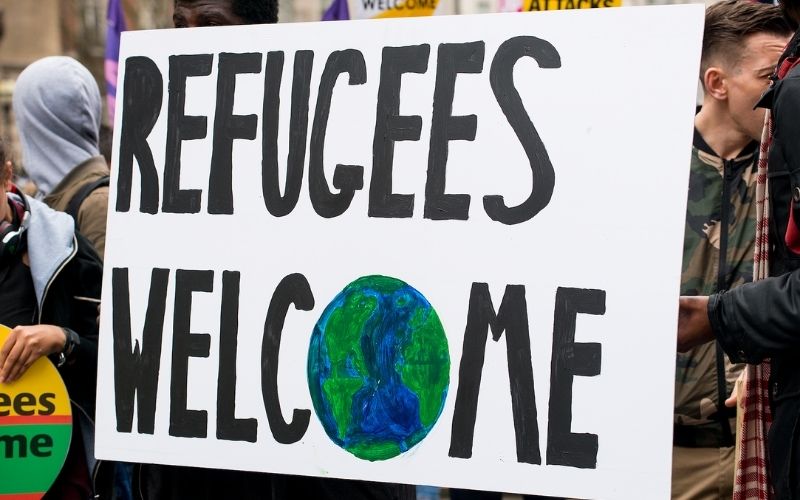
This announcement is a breath of fresh air after the past four years of decreased refugee admissions to the U.S. In October, the Trump-Pence administration set the admissions cap at 15,000 for Fiscal Year 2021, the lowest number since the launch of the U.S. Refugee Admissions Program in 1980. Meanwhile, the U.S. failed to reach the admissions cap of 18,000 for Fiscal Year 2020, with only 11,814 refugees welcomed as refugee resettlement came to a halt due to the COVID-19 pandemic, although the need for resettlement has not gone away. The UN Refugee Agency (UNHCR) estimates that over 1.4 refugees will be in need of resettlement in 2021, so it is of utmost importance that the Biden-Harris administration remains committed to this promise and reopens the country to refugees.
Recent events increase the pressure on the incoming administration to uphold these promises to refugees and asylum seekers. Central America continues to recover from the destruction of Hurricanes Eta and Iota, with over 5 million people affected and at least 1.5 million of them children. Their homes covered in mud and communities washed away, the list of reasons to migrate continues to grow for Central Americans. The situation in Central America may mark the beginning of future exoduses due to the changing climate, as UNHCR estimates that climate-related disasters could increase the number of people requiring humanitarian assistance to 200 million each year by 2050.
Globally, 79.5 million people are currently displaced. Forced to flee due to “persecution, conflict, violence, human rights violations or events seriously disturbing public order,” these individuals and families have sought refuge within their own country’s borders or beyond. Many seek asylum at the borders of neighboring countries, while some make the harrowing journey across sea and land to reach the U.S. border.
The U.S. border is currently an unwelcoming place, sealed off to asylum seekers due to policies such as the Migration Protection Protocols (MPP), family separation, and the closure of the border in response to COVID-19. For a country that sees itself committed to the protection of human rights, these policies demonstrate a deliberate denial of the right of asylum and put asylum seekers at risk of returning to dangerous and life-threatening situations.
While the American public wishes away the tragedies of 2020, it cannot be expected that 2021 will be any easier as the United States continues to recover from the COVD-19 pandemic. The federal, state, and local governments must not forget the refugees and immigrants (particularly DACA recipients and TPS holders) who have contributed to our recovery efforts and work essential jobs. Often, it falls into the hands of migrants themselves to share what they have with the immigrant community around them. Xiomy De La Cruz, a Peruvian refugee in Hartford, CT, started a food pantry that serves families facing food insecurity in her neighborhood, many of whom are undocumented.
The Biden-Harris administration will face the challenge of reversing these restrictive immigration policies and restoring the asylum and refugee resettlement process. I pray they heed the words of Pope Francis and encourage our nation to “develop a creative openness to others.” Yet we cannot depend on them alone. We must hold our government accountable and reaffirm our commitment to advocating in solidarity with the immigrant and refugee community.
From joining in the calls to save asylum and increase refugee admissions, we must make our voices heard.

Josh Utter is originally from Madison, WI, and a graduate of Loras College in Dubuque, IA. Based in Phoenix, AZ, Josh is the outreach officer for Jesuit Refugee Service/USA.

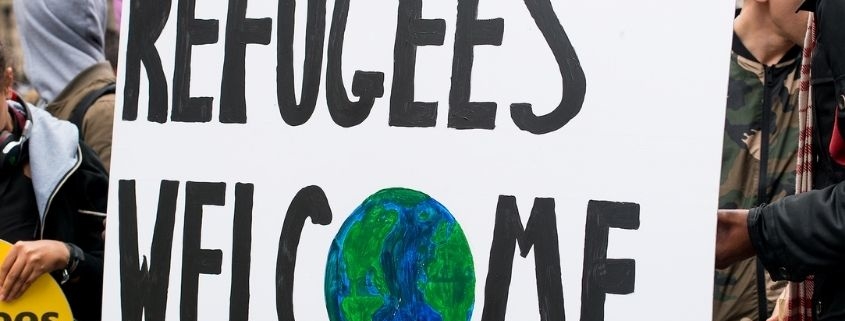

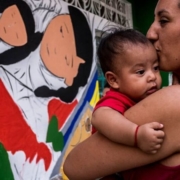
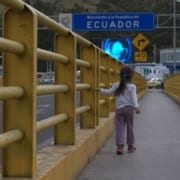
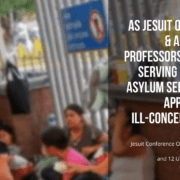
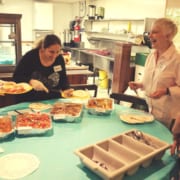
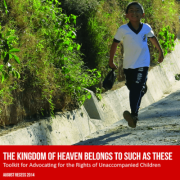

Life is a precious gift. Natural and man-made circumstances force people to run to places to honor and prolong their God-given existence. Some countries offer a warm welcome. And it is so nice to hear about noble and welcoming people, being generously placed in strategic places by the Giver of life. May their tribe increase.
Not every Refugee and Asylum seeker loves places that have democracy and there ideology is the complete opposite, look at Sweden,Germany,France,Italy and even the U.K where there was a influx of people escaping harsh conditions etc.
I have friends currently in Europe and have been told about no go areas and the rise of crime especially against women which is well documented.
But we are on about the US which is supposed to be the land of the free, if the government does the necessary checks and the person has followed the correct channels and not entered the country illegally then maybe a probation period should be added to there condition to stay here.
My problem is there is a huge percentage that come from South America that is attached to criminals and helps them to corrupt officials, drugs which harm Americans and occasionally a very tiny fraction are gang members.
Don’t get me wrong there are bad apples even in the least expected places, yes it’s right to help those in need but is it right knowing it can affect us the American people and even worse the country there escaping.
There’s two sides of coin but lives are on the line instead, this is real and not a fairy-tale.
Hi Josh, this is Margaret from Georgetown ’20/ Jesuit Volunteer Corps. Thank you for writing this article. I really appreciate that you highlighted Pope Francis’ call to “creative openness.” What a wonderful phrase! It is the perfect sentiment to guide immigration practitioners as we attempt to approach the new year and new administration with cautious optimism. I will keep Pope Francis’ words at the forefront of my mind as I attempt to envision and enact new ways to welcome the “stranger” in my midst. Many thanks to JRS for leading the way and to you for writing this inspiring article. Merry Christmas and a Happy New Year!